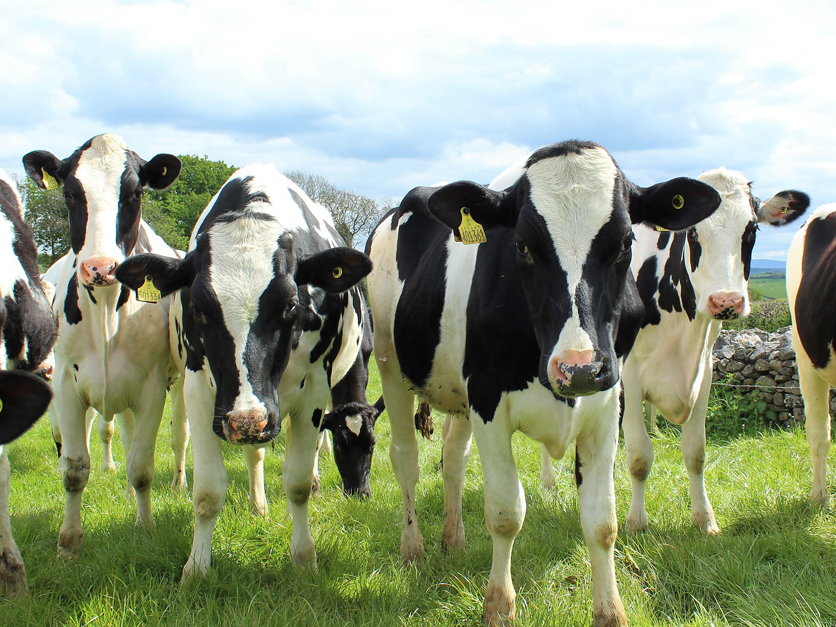Dairy Farmers of America cannot use a law designed to equalize farmers’ bargaining power with corporations handling agricultural products to protect itself from antitrust claims, the Justice Department said in a court filing.
The case involves more than 100 Northeast dairy farmers who opted out of a $50 million class-action settlement in 2016 alleging DFA and its marketing arm “had conspired to monopsonize the fluid milk market in the Northeast,” according to the Organization for Competitive Markets.
Unlike a monopoly, where there is a single seller, a monopsony exists when there is a single buyer.
Congress passed the Capper-Volstead Act in 1922 “to give farmers who produce food greater bargaining power with processors and other corporate handlers of food products,” DOJ’s July 27 brief said. “It would be inconsistent with the act’s text and purpose to allow a defendant to use [it] as a shield when it acts as a food processor or exercises monopsony power to harm individual farmers.”
In a “statement of interest” filed in federal court in Vermont, the government said, "To the extent that plaintiffs show at trial that DFA violated the Sherman Act in reaping profits as a handler or processor from lower milk prices," rather than for the mutual benefit of its producer-members, DOJ said "it would turn the [Capper-Volstead ] Act on its head to allow DFA to use the act as a legal shield.”
“The plaintiffs allege that defendants engaged in several overt acts in furtherance of the alleged conspiracy's unlawful objective to monopsonize, including, but not limited to: (1) written and unwritten non-solicitation agreements and sharing of information regarding farmer pay programs; (2) supply agreements; (3) most favored nation clauses and pricing; and (4) outsourcing agreements,” the DOJ filing says, then quotes U.S. District Judge Christina Reiss’ September decision, which allowed the case to move forward: “The alleged effect of these agreements is ‘to depress prices paid to dairy farmers for their raw Grade A milk.’”
In response, DFA Executive Vice President and Chief of Staff Monica Massey said "we are aware of the Department of Justice filing and do not see that it has any bearing on the issues the court will decide in our current case in Vermont."
In her decision, Reiss said the plaintiffs had offered “admissible evidence from which a rational jury could conclude that DFA management favored growth of its commercial operations and empire building over the interests of its farmer-members, including through executive compensation and benefits which were not fully disclosed to DFA members and improper payments to DFA Board Members and Area Council Members.”
“The claims at issue in this case fall outside the heartland of Capper-Volstead protection because they do not involve claims that farmer cooperatives acted anticompetitively against processors and other middlemen, but rather claims that farmer cooperatives — through agreements with processors, middlemen, and other cooperatives — acted anticompetitively against other farmers,” DOJ said.
OCM Executive Director Ben Gotschall said his group is “pleased to see a government agency with antitrust enforcement authority taking a stand for the rights of farmers and ranchers.” The Sherman and Clayton antitrust acts, he said, “have been on the books for over a hundred years, and the DFA suit is an important opportunity for them to be interpreted correctly, as they were intended: to curb corporate abuses and end anti-competitive behaviors, even if they are committed by cooperatives such as DFA.”
As to whether the outcome of the case may set a precedent, Gotschall said on OCM’s website that “Once the trial begins, arguments and evidence are presented, and we see the outcome, we should know more about whether this case will set a precedent that would guide other interpretations of agriculture antitrust cases.”
DFA was recently approved to buy Dean Foods, an acquisition that is facing its own antitrust lawsuit in North Carolina. Gotschall told Agri-Pulse he wasn’t sure whether that transaction would have any bearing on the Vermont lawsuit.
“Most of the evidence I've seen was pertaining to activity prior to the merger,” he said. “That said, there may be some implications relating to Dean, as they were one of DFA's largest customers for processing, and are a non-cooperative.”
“Certain business dealings with non-cooperatives are what would make DFA ineligible to be shielded by the Capper-Volstead Act and would make them subject to enforcement of Section 1 of the Sherman Act,” Gotschall said, citing the DOJ brief.
Trial in the case is scheduled to begin Sept. 30.
DFA's Massey elaborated on the company's reaction to the DOJ filing in a statement.
"The Statement of Interest filed by the DOJ’s Antitrust Division provides its view on the Capper-Volstead Act. It is well-known and understood that the DOJ disfavors antitrust exemptions. That said, we are confident that we have operated within the limited exemptions allowed through the Capper-Volstead Act, which make it possible for farmers and co-ops to work together to sell their products."
"DFA was formed by and is governed by dairy farmers and operates for the sole purpose of bringing value to our family farm-owners across the country," Massey said. "While a small group of disgruntled farmers feel differently, we remain committed to working hard every day to achieve this mission."
This article was updated July 31 to include a response from DFA.
For more news, go to www.Agri-Pulse.com.


![Steve headshot 250x200[1]](http://www.agri-pulse.com/ext/resources/Headshots/Staff-Photos/thumb/Steve_Headshot_250x200[1].JPG?1738947158)